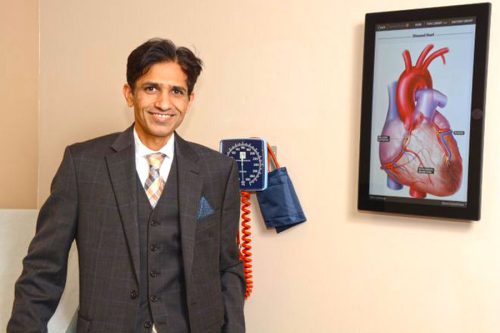 Almost half of U.S. adults ages 20 and older have some form of cardiovascular disease, the leading cause of death for Americans since 1920. High blood pressure is the most common cardiovascular condition. Other serious diseases affecting the heart or blood vessels include:
Almost half of U.S. adults ages 20 and older have some form of cardiovascular disease, the leading cause of death for Americans since 1920. High blood pressure is the most common cardiovascular condition. Other serious diseases affecting the heart or blood vessels include:
- Coronary artery disease, which reduces the amount of oxygen reaching the heart.
- Peripheral arterial disease, which affects blood flow to the arms and legs.
- Blood clots, which block blood flow and can cause a stroke or heart attack.
- Stroke, which is caused by a blocked or burst blood vessel that cuts off blood supply to the brain.
- Heart attack, which happens when blood flow to the heart gets blocked.
Possible warning signs – You might have a vascular problem if you have:
- Chest discomfort or pain.
- Aches, pains or cramps in the legs while walking or climbing stairs.
- Shortness of breath or extreme tiredness.
- Dizziness or problems seeing, thinking, or remembering.
- Weakness or numbness on one side of the face or body.
Some people may not have any symptoms of cardiovascular disease until it becomes severe, causing a heart attack or other serious health issue. You should talk with your healthcare provider about your risk even if you don’t have symptoms.
Call 911 if you think you or another person could be having a heart attack, stroke, or other emergency.
Treatment options – There are many medicines that can help treat vascular problems, including some to reduce plaque buildup or blood clots and treat high cholesterol or high blood pressure. Your provider may recommend surgery to restore blood flow and otherwise treat heart and blood vessel diseases.
For further information, contact Dr. Shahzad Ahmed MD, FACC, FSCAI, RPVI, Interventional Cardiologist, Director of Cardiology, BMC Cardiology Practice, 215-785-5100.

